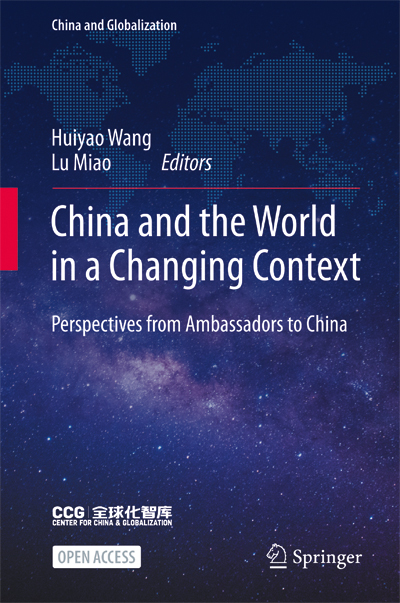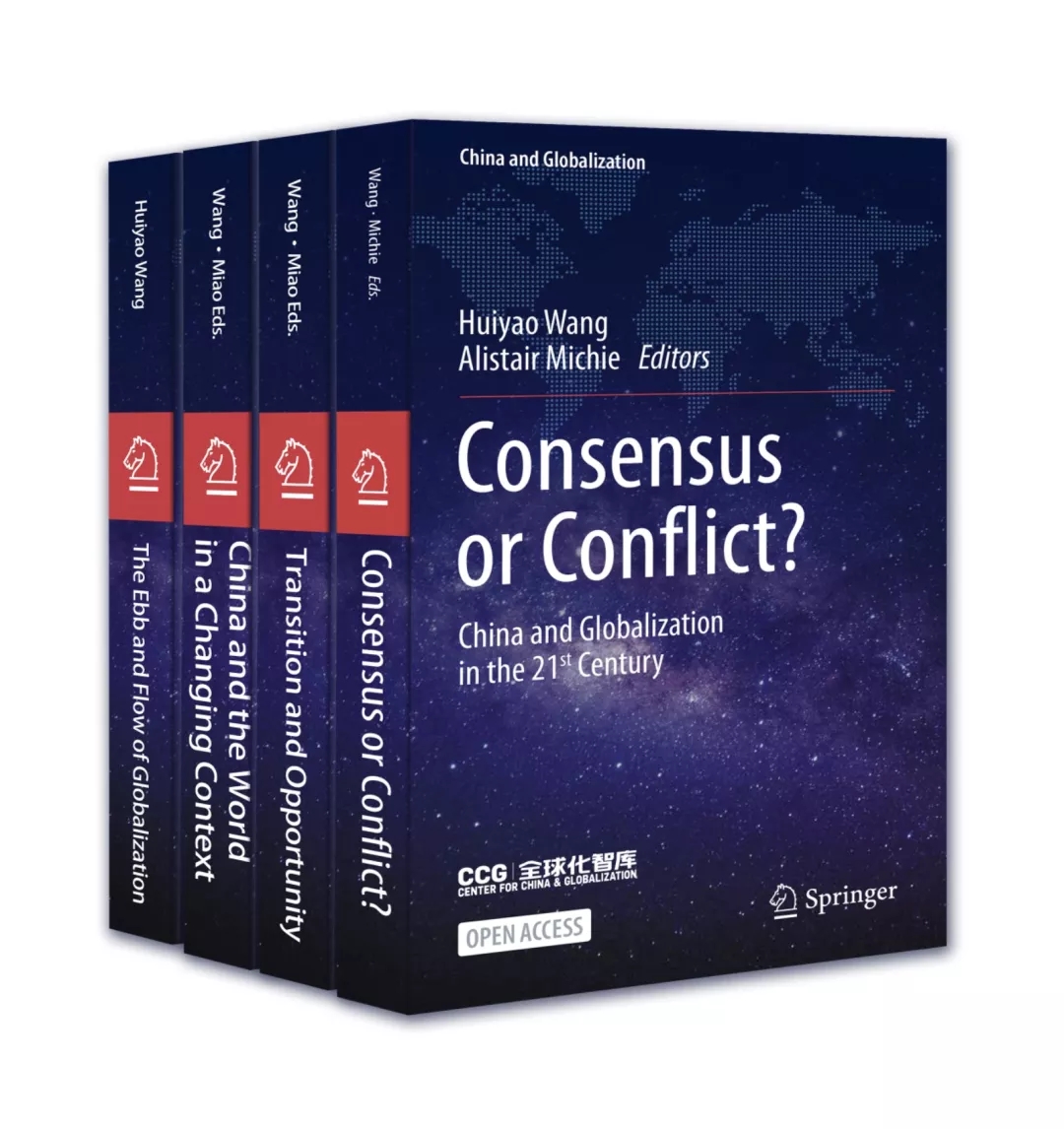Permanent Representative of the African Union to China: Prospects for China–Africa Cooperation
“China as a consistent partner of Africa and its member states, plays a key role in supporting the empowerment of youth in Africa through the promotion of knowledge sharing, entrepreneurship, cultural and experiences exchanges.”
——H.E. Mr. Rahamtalla M. Osman Elnor, Permanent Representative of the African Union to China
The relationship between China and Africa has grown exponentially in the last two decades thanks to the launching in 2000 of the Forum on China–Africa Cooperation (FOCAC), which gave practical expression to the historic solidarity that has traditionally existed between Africa and China, in addition to Belt and Road Initiative (BRI) launched in 2013 by President Xi Jinping, initially involving development and investment initiatives on infrastructures that would stretch from East Asia to Europe, which was later extended to Africa.
An overview of the recent history of China-Africa cooperation shows that the last twenty years have witnessed various achievements in the political, economic, technical, scientific and socio-cultural fields. In fact, in the past two decades, the China–Africa partnership has made vital and formidable footprints in the struggle for sustainable development and improved living conditions for people in Africa. In many areas, this partnership has delivered concrete outcomes that are beneficial to both Africa and China, in areas including investment, trade, health, agriculture, energy, education, culture and people-to-people exchanges, among others.
More recently, the China–Africa partnership has also emphasized cooperation under the BRI. As it was expressly stated in the Beijing Declaration of 2018, Africa, being part of the historical and natural extension of the Belt and Road, is an important participant in the BRI and the cooperation within that framework should generate more resources and expand the market and space for African development. Indeed, Africa and China agree on the need to form a strong synergy between the BRI and the 2030 Agenda for Sustainable Development of the United Nations (UN), and the AU Agenda 2063, as well as the development strategies of individual African countries. The two sides further agree that closer connectivity in policy, infrastructure, trade, finance and people-to-people ties, strengthened industrial capacity cooperation and greater cooperation in the planning of African infrastructure and industrial development, will lend new impetus to the win–win relationship and common development between China and Africa.
One should note that the AU Agenda 2063, as a strategic framework for the socio- economic transformation of the continent over the next 50 years, emphasizes the need for integration as one of the key foundations to ensure that Africa achieves its goals for inclusive and sustainable growth and development. In particular, Aspiration 2 places importance on the need for Africa to develop world-class infrastructure that crisscrosses Africa and will improve connectivity through newer and bolder initiatives to link the continent by rail, road, sea and air, as well as developing regional and continental power pools and information communication technologies. The UN 2030 Agenda also serves as a guiding blueprint for development cooperation around the world, and in recent years, the international community has made initial progress in achieving the agenda’s goals, but global development still remains unbalanced.
The AU and UN have been working together to synchronize the two agendas. In January 2018, the UN Secretary-General H.E. Antonio Guterres and the AU Commission Chairperson H.E. Moussa Faki Mahamat signed the AUUN Framework for the Implementation of Agenda 2063 and the 2030 Agenda, at the 30th AU Summit. The joint AUUN sustainable development framework envisions stronger coordination between the two organizations to ensure that the two agendas are mainstreamed and integrated into the national planning frameworks of member states and contribute positively to African development. A harmonized and integrated approach to the implementation of the two Agendas will help to minimize duplication, optimize resource use and mobilize the support of domestic and external stakeholders and development partners.
2020 was a challenging year for the entire world due to the COVID-19 pandemic, which has led to a slowdown in economic activities, destroyed value chains, caused the closure of companies and considerably reduced tax revenues in many countries. Africa has been negatively impacted by the pandemic and is now feeling the socio- economic impact despite efforts being undertaken to control and manage its impact across the continent. Equally, the COVID-19 pandemic has posed a serious threat to the 2030 Agenda, making it difficult to achieve its goals in all countries and for all people as scheduled.
China’s remarkable achievements in poverty reduction and absolute poverty eradication in recent years have made it the first developing country to achieve the poverty-reduction targets set by the Millennium Development Goals (MDGs) ahead of schedule. Hence, there is a consensus that China’s poverty reduction approach may serve as a useful model for Africa.
Through international cooperation on improving development capacity and optimizing development partnerships, China has helped Africa to mitigate the impact of the pandemic, so as to accelerate action for the 2030 Agenda and achieve common prosperity. China and Africa should continue to spearhead the epidemic response as guided by the Extraordinary China-Africa Summit on Solidarity against COVID- 19, including steps like facilitating Africa’s access to medical supplies from China, speeding up the construction of the Africa CDC headquarters, and enhancing cooperation key areas such as health, vaccines and medicines, work and production resumption and improving people’s livelihoods.
Africa has developed very concrete projects for the development of the continent in agriculture, trade and industry, infrastructure, etc. One of the key mechanisms that enables African development is the African Continental Free Trade Area (AfCFTA), which represents a window of opportunity for African countries to promote intra- African trade, diversify and structurally transform the continent’s economy and pursue important socio-economic development goals. The goals of the AfCFTA are to harmonize the trade policies and regulatory frameworks, rationalize trade negotiations, reduce the cost of doing business, support industrialization and stimulate cross-border infrastructure projects. However, to realize these goals, a strong partnership with China through FOCAC and the BRI is required to mobilize resources and stakeholders to implement the Free Trade Area. The full implementation of the AfCFTA will also improve the prospects of Africa as an attractive investment destination. China and other partners will benefit from investment opportunities and access to a wider, more efficient and more harmonized market.
The recently adopted outline of the 14th Five-Year Plan (2021–2025) for National Economic and Social Development and the Long-Range Objectives Through the Year of 2035 by the 13th National People’s Congress (NPC) envisages China achieving their goal of a moderately prosperous society in all respects within the set time frame, and will embark on a new journey in the coming years toward fully building a modern country and society. This also includes China entering into a new stage of development and adhering to a new development philosophy, through a new development paradigm with a focus on domestic circulation and with domestic and international circulations reinforcing each other. This approach may ultimately create broad market and development opportunities for Africa, which is critical to strengthening mutual trust at all levels and ensure win–win cooperation. China and Africa public and private sector partnerships will become a prior condition to any coordinated action.
2021 is an important year for China–Africa relations, as it will witness the holding of the next FOCAC meeting in Senegal, which will be a significant and far-reaching event that can take the win–win cooperation and common development between China and Africa to a higher level. China has already made Africa one of its key development partners, and there is a huge expectation that the forthcoming FOCAC will enhance the synergy between China’s Two Centenary Goals and the AU 2063 Agenda as well as the development strategies of individual African countries. Post- COVID-19 socio-economic recovery, health, digital economy, blue economy and green development should be highlighted in the forthcoming FOCAC’s agenda in addition to the usual topics.
Africa is undoubtedly the continent of the future and has enormous economic potential. This is in addition to its youthful population, which constitutes a large and rapidly growing proportion of the continent’s population. Africa’s population is currently 1.2 billion, and it is expected to more than double by 2050. Currently, 60% of the continent’s population are under 25 years of age, and in 2050, Africa will be home to 452 million youth between the ages of 15 and 24. Africa’s young population represents an opportunity to drive the continent towards development. China, as a consistent partner of Africa and its member states, plays a key role in supporting the empowerment of youth in Africa through the promotion of knowledge sharing, entrepreneurship, cultural and experience exchanges.
While the FOCAC partnership has delivered many concrete outcomes that are mutually beneficial, China and Africa still need to utilize their partnership to the fullest extent in terms of the potential of the available market, investment, trade and business opportunities. There is a need to strengthen collaboration between Africa and China with the goal of achieving outcomes that are in line with the aspirations of Africa’s Agenda 2063 and in achieving China’s BRI cooperation objectives. This partnership will also support Africa in achieving the Sustainable Development targets established under UN the Agenda 2030. All stakeholders are called upon to play a key role in articulating the implementation of China-Africa development plans and mobilizing the necessary partnerships to achieve the desired effects.
H.E. Rahamtalla M. Osman Elnor has been the Permanent Representative of the African Union to China since 2018. Mr. Osman has occupied senior governmental positions in a career that spans over 40 years. He has served as a Permanent Representative of Sudan to the United Nations in New York from 2014 to 2015, Undersecretary of the Ministry of Foreign Affairs in Khartoum from 2010 to 2014, Ambassador of Sudan to Brazil from 2004 until 2008, and Non-Resident Ambassador to Chile, Argentina, and Venezuela from 2005 to 2008. He holds a bachelor’s degree in economics from the University of Khartoum (1976) and a master’s in political science from the Institute of African and Asian Studies at the University of Khartoum.

China and the World in a Changing Context
Perspectives from Ambassadors to China
Editors: Huiyao Wang, Lu Miao
Published in March, 2022
ISBN: 978-981-16-8085-4
Publisher: Springer Nature Publishing Group
Download Book at Springer
https://link.springer.com/book/10.1007/978-981-16-8086-1
CCG’s new book China and the World in a Changing Context: Perspectives from Ambassadors to China has been released online. This open access book presents China and a changing globalized world from the perspective of 23 ambassadors to China, covers key development topics including economic growth, foreign policy, and SDG-related themes.

Series Editors: Huiyao Wang Lu Miao
Publisher: Springer Nature Publishing Group






